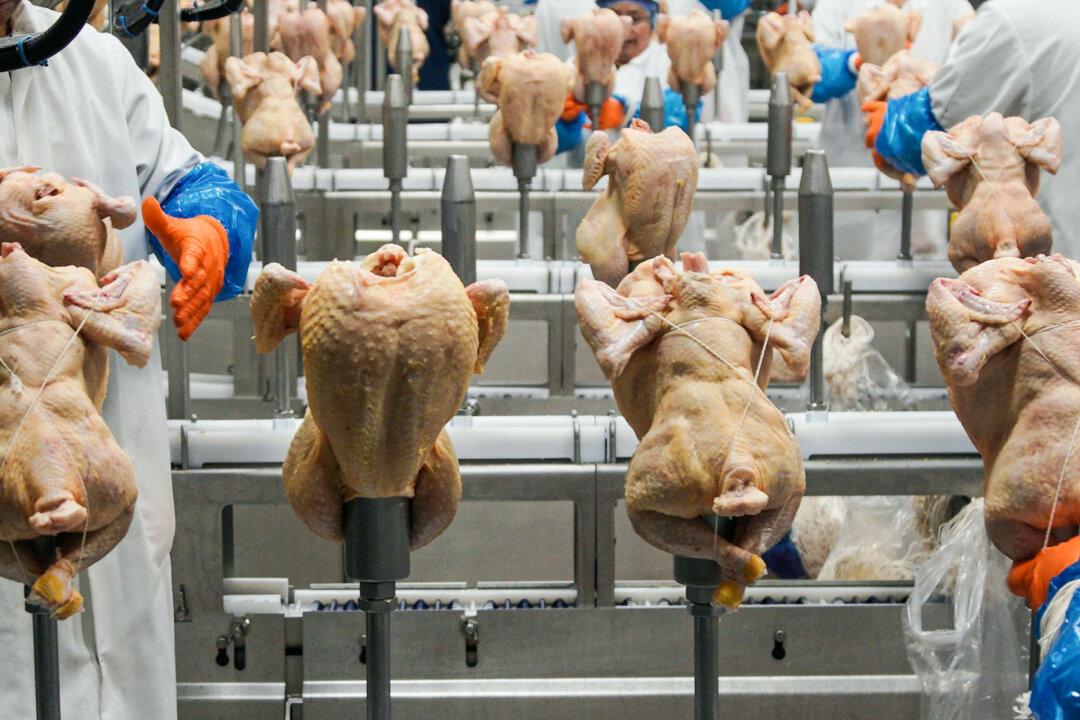The U.S. Department of Agriculture announced on Thursday that it is withdrawing a proposed rule that would have required poultry companies to limit the presence of salmonella bacteria in their products, ending an effort by the past Biden administration to reduce foodborne illnesses linked to contaminated meat.
The USDA’s Food Safety and Inspection Service (FSIS) said the decision follows the review of more than 7,000 public comments submitted in response to the proposed rule, which was published in August 2024.





